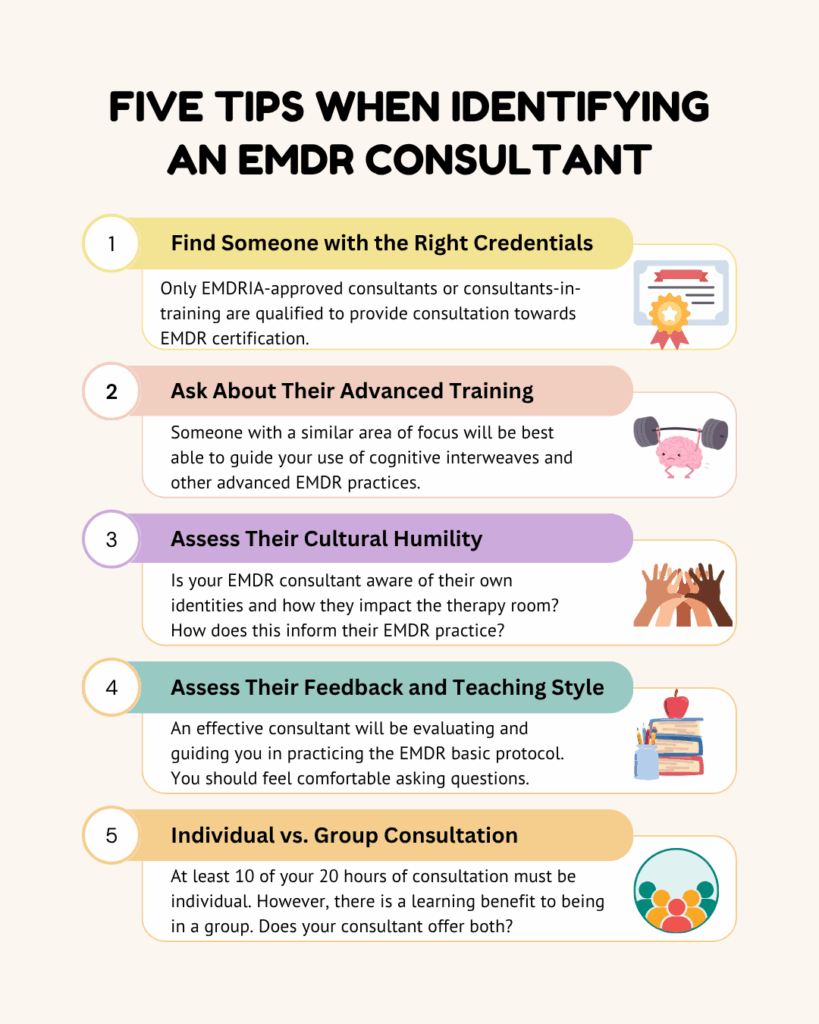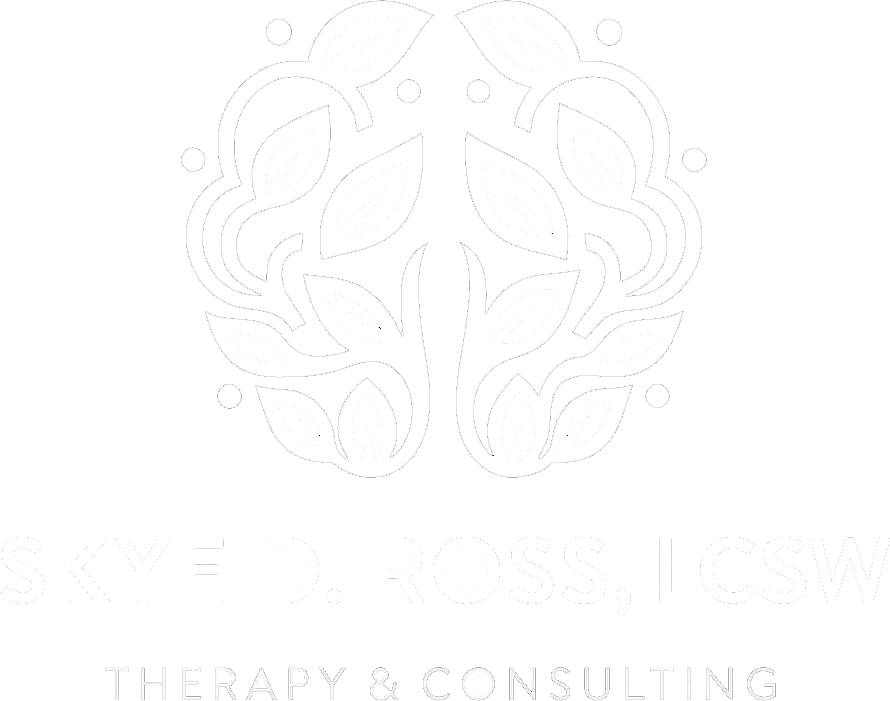In this post, I outlined why it makes sense to become an EMDR-Certified therapist. It makes sense to become certified to demonstrate competency and attract more of the clients who fit your specialization. Whether you’ve made the decision to become EMDR-certified or are addressing anxieties around utilizing EMDR with your clients, it’s important to find a consultant who can guide your growth as a therapist.
Identifying Your Consultant
Approved consultant or Consultant-in-Training?
Any EMDRIA-Approved therapist is eligible to become a Consultant-in-Training (CIT). CITs are approved by EMDRIA to accrue experience towards becoming an approved consultant, which means that they are working towards meeting the following requirements:
- Offering consultation to at least 5 different consultees
- Providing at least 300 sessions of EMDR with at least 75 clients
- Completing 20 hours of “consultation of consultation” with an EMDRIA-approved consultant
- 12 CEUs of advanced training
Consultants-in-Training can provide 15 of your required 20 hours of consultation. Working with a CIT may save you money if you are paying for your own consultation, as they are still working towards their credential, and you will ultimately have the support of two advanced-level EMDR professionals. Consultants have met all of the above requirements and are able to provide EMDR consultation independently.
Where to search for a consultant?
Now that you know the difference between an EMDR consultant and CIT, you are ready to begin your search. But where to look?
- If you had a positive experience in the 10 hours of consultation for your EMDR training requirements, ask your consultant if they have space or can recommend a colleague. You can also ask your trainer for recommendations.
- Use the EMDR International Association (EMDRIA)’s EMDR Therapist Directory. This directory offers profiles of EMDRIA-approved therapists, CITs, and consultants to help you identify the right person
- Google search “EMDR consultants” with your location and/or area of specialty
How to choose a consultant
While any consultant can support your skill in using the basic EMDR protocol with all 3 prongs (past, present, and future), an experienced consultant in your specialty helps you identify effective cognitive interweaves and advanced trainings that improve your practice. For example, as I became an approved EMDR therapist and while working towards becoming an EMDR consultant, I have taken advanced training in somatic-focused EMDR, treating addictions with EMDR, and integrating Internal Family Systems (IFS, sometimes called “parts work”) with EMDR. Knowing this helps therapists identify whether our interests and specialties align as they determine whether or not to meet with me for this stage of their professional development.
Your consultant should set the stage and demonstrate that they take your learning seriously. One way a consultant may demonstrate this competency is by having you complete consulting intake paperwork that gives you an opportunity to explain what you are hoping to learn through the consultation process. They may offer an initial phone call, similar to how you might bring in a new therapy client. These are opportunities to assess their communication and experience.
Assess their ability to work across cultures and whether their approach or experience matches what you are looking for. You might start by asking questions directly or assess this by exploring their website. Are there indications that they will be welcoming to you and the people you serve and mindful of how diverse experiences can impact mental health language and perception of trauma?
Consider the benefits of individual and group consultation experiences. Individual consultation offers you the most direct feedback from your consultant, but group consultation offers learning beyond the clients in your own practice. It gives you an opportunity to demonstrate your knowledge in offering feedback to colleagues and to learn from their experiences in turn. Additionally, consultation groups are generally more cost-effective than individual consultation sessions. Certification requires at least 10 hours of individual consultation and you can decide whether it is worth it to you to find a consultant who offers both experiences.

Important Questions to Ask Your Prospective EMDR Consultant
Sometimes we forget that we don’t have to work with the first person who responds to our contact. We expect our clients are meeting with multiple therapists to find the right person to support their growth, so why wouldn’t you treat your professional growth with the same care? You should go into your first meeting with a consultant prepared to interview them.
Get to Know Your Consultant
- Why did you get trained in EMDR?
- Why did you become a consultant?
Focus and Specialty Areas
- What advanced training have you taken?
- What is your favorite use of EMDR?
- Do you hold other credentials?
- Do you treat specific populations, diagnoses, or symptom presentations?
Feedback & Teaching Style
- How will you assess my work?
- How do you provide feedback?
- Will I be required to record sessions or provide progress summaries?
- What are the benefits of consulting with you?
- How do you structure consultation sessions?
Cultural Humility
- How do you tailor your practice to the person in front of you?
- What do you do to balance privilege and power in therapy and consultation?
- What training have you taken on anti-racist, inclusive, and/or anti-oppressive practices?
- What populations do you serve in your therapy and consultation practices?
